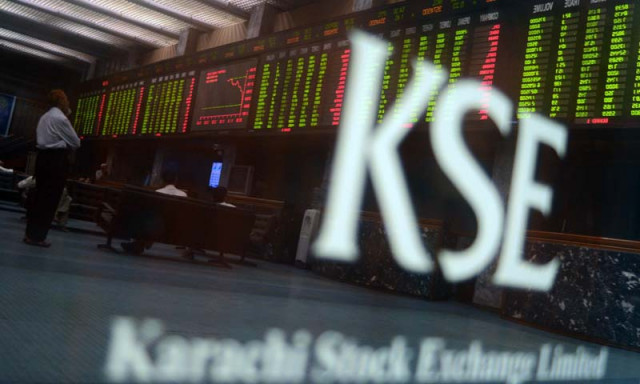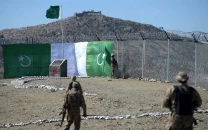Fight against terrorism: Capital markets likely to benefit as country unites
Analysts believe triggers are in place for equity market re-rating.

A major terrorist attack is enough to shake a country’s capital markets.
However, along with the entire nation, stock market analysts seem to believe that the Peshawar attack of December 16 may actually mark a watershed in Pakistan’s decade-long battle against terrorism.
According to BMA Capital Director of Research Muhammad Azfer Naseem, the incident has helped in further galvanising support for the ongoing operation against militants in the Federally Administered Tribal Areas (FATA).

A decisive action against militants will send a positive message to long-term investors, although it will inevitably have some negative consequences in the short run. In addition, the conclusion of the four-month-long sit-in by the Pakistan Tehreek-e-Insaf (PTI) has also sent an encouraging signal to investors worldwide.
“Triggers are in place for an equity market re-rating,” said a research note by KASB Securities released on Thursday.
Positive political developments have also coincided with the long-awaited approval of a loan tranche of $1.05 billion from the International Monetary Fund (IMF) board, which is going to further strengthen Pakistan’s foreign exchange reserves.
“With the end of the sit-in reducing the political overhang, the PML-N can now completely focus on its reform agenda in order to set the stage for higher growth,” KASB Securities research analyst Mohammad Fawad Khan stated. The inflow from the IMF will help Pakistan meet the end-of-year foreign exchange reserves target of $15 billion. KASB Securities’ sensitivity analysis suggests that Pakistan’s current account will record a whopping surplus of $3.8 billion in 2015-16 if oil prices persist at current levels.

However, Khan cautioned there are still issues that, if left unaddressed, can potentially cut short the excitement in the equity market. On top of these concerns is the prevailing uncertainty on institutional foreign selling. Data shows foreign investors have pulled out $53 million from the equity market since the start of December.
Secondly, there are fears about a possible retaliation from terrorists, as the government and security forces prepare to step up operations and execute death penalty for imprisoned terrorists, Khan noted.
Lastly, he added the details of the new IMF benchmarks are still not clear. “All in all, we maintain our positive outlook,” he wrote.
Khan believes that one consequence of the long-lasting political standoff with the PTI was a perceived erosion of government’s authority to implement tough economic decisions.
“The end of the sit-in is unlikely to bring any major shift. Interestingly, many of the unpopular economic measures, like gas price hikes, were front-loaded in the initial term of the current government and were implemented without much of political opposition,” he said.
Noting that the political backdrop has now changed, KASB Securities said a few expected measures under the IMF programme, like privatisation, may invite criticism or require intensive bargaining with the opposition parties.
Published in The Express Tribune, December 19th, 2014.
Like Business on Facebook, follow @TribuneBiz on Twitter to stay informed and join in the conversation.



















COMMENTS
Comments are moderated and generally will be posted if they are on-topic and not abusive.
For more information, please see our Comments FAQ